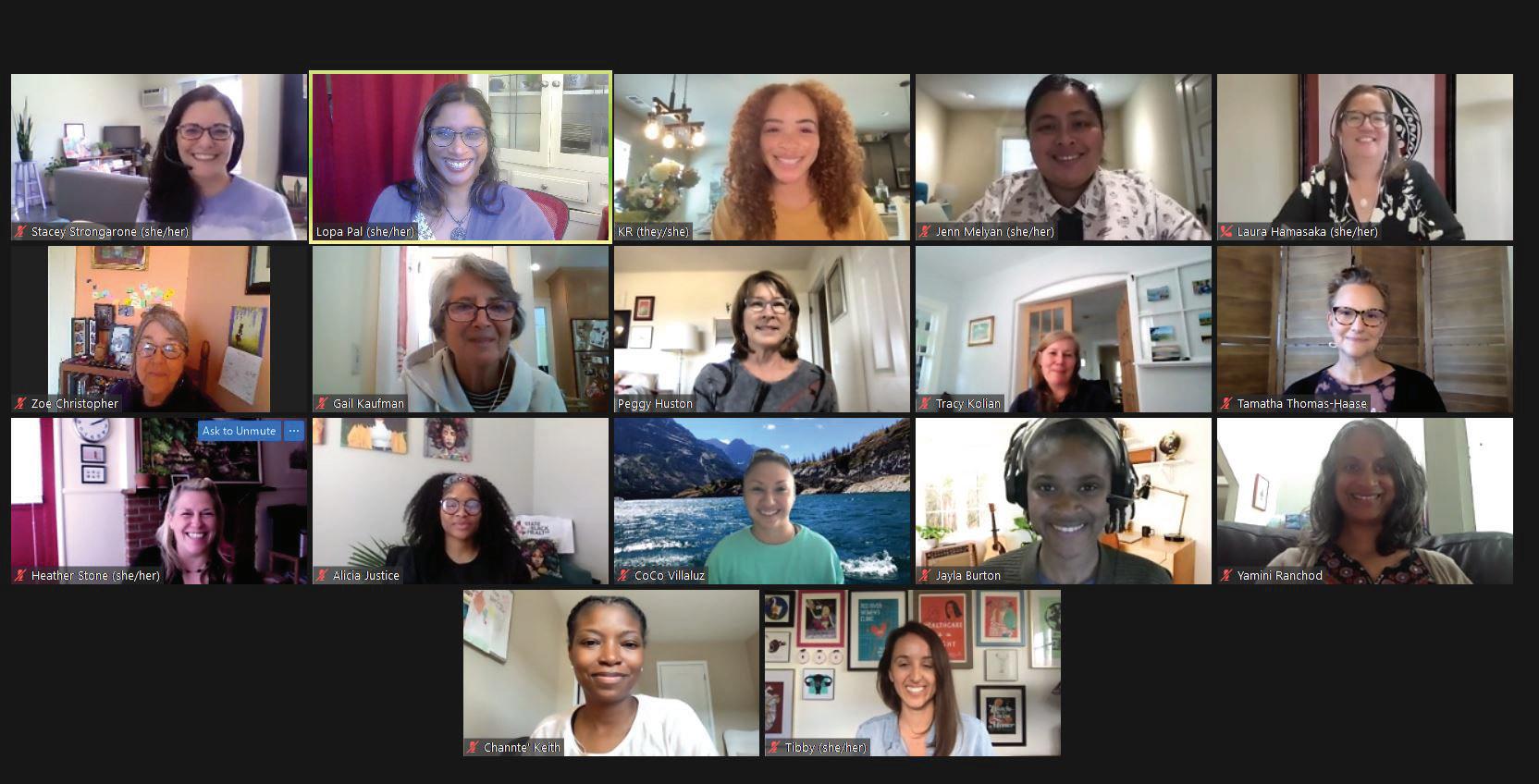








LIVING
VALUES:
STRENGTHENING
OUR
VISIONING, STRATEGIZING,




I am a longtime supporter because I love Breast Cancer Action’s radical and evidencebased values.
► Bonnie Spanier (Top-left)
Ribbons never resonated with this survivor. But taking on environmental hazards and calling out the hypocrisy in such things as pink fracking drill bits did. Action saves more lives than words.
► Dena Taylor (Top-middle)
I support Breast Cancer Action because I’m a retired oncology nurse and a breast cancer survivor. AND I loathe the pink ribbon movement!
► Dianne Romanos (Not pictured)
It’s the only organization I know of, dedicated to breast cancer, that isn’t on the hamster wheel of money-generating, money-taking, money-making. I trust you!
► Jeannette Millard (Top-right)
I have had breast cancer 30 years ago and Breast Cancer Action was where I got the best information. I support this group and am glad it is still here for all the women who need their help and information.
► Jennell Parr (Not pictured)
I believe in your work to eradicate breast cancer through systemic change strategies.
► Lisa Korwin (Middle-left)
One of the most inspirational people I know introduced me to Breast Cancer Action. I believe in the mission and the approach this group takes to tackling this disease.
► Maj-Britt Llewellyn (Center)
Your work calling out environmental causes of cancer saved my wife’s sanity when all doctors (and anyone else) were telling her was - eat right, exercise more, blah, blah. She did all that and got cancer. You did wonders for her mental health. Thanks!
► Sandy Bailey (Middle-right)
As a somewhat recent cancer survivor, I was looking to get involved with an organization focused on health justice with a strategy rooted in racial and gender equity. Breast Cancer Action is the organization doing work most aligned with my values, and I’m so grateful to be able to contribute.
► Stacey Strongarone (Bottom-left)
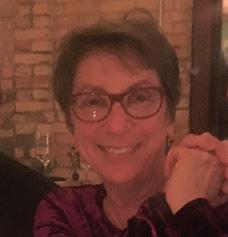
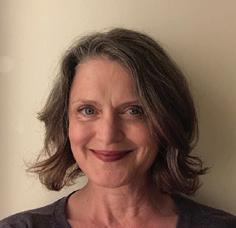
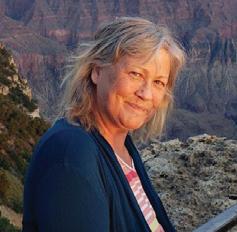
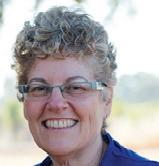
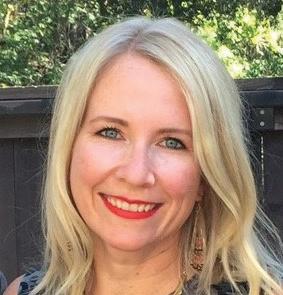
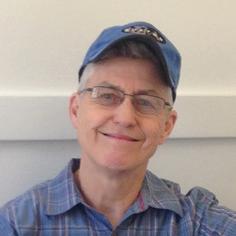
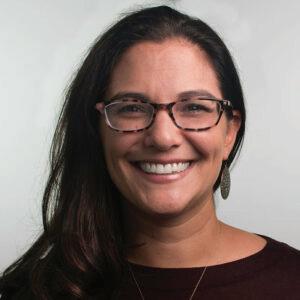
2



Dear Friends and Supporters, Breast Cancer Action is on the cusp of a new era.
Several new and emergent opportunities have culminated in the current moment for Breast Cancer Action – opportunities that will guide us into a bold new stage of our work. After honoring our 30th Anniversary at our first-ever virtual event, we leaned into our national work, navigated our first full year as a virtual organization, and made our way through another pandemic year.
“New” is the theme for Breast Cancer Action at this moment – this year we incorporated new staff, new platforms, new virtual spaces, and started our strategic plan process that will guide our programmatic priorities and strengthen our mission, vision, and values for the next five years.
When I came on staff in January, I joined the team as Breast Cancer Action’s newest Executive Director, and my arrival was proceeded by the addition of two new team members, for a total of three staff joining the organization this fi scal year. With a new a team comes shifted capacities and new opportunities. This year we launched two new digital platforms that you’ll learn about in this Annual Report: our Instagram account and a completely redesigned new website, which makes our one-of-kind resources more accessible and represents more of who we are.
Breast Cancer Action’s work extends beyond advocacy and education – we have always fearlessly pushed for culture change in the field of breast cancer. When we developed our Spring event, Drawing the Connections, we intentionally crafted a space that centered social justice and uplifted the work of artists who drive culture change forward. This event featured a curated collection of artwork that connected the issues of breast cancer, health justice, and social change that resonated strongly with our members. Moving forward, you can expect to see Drawing the Connections become an annual event.
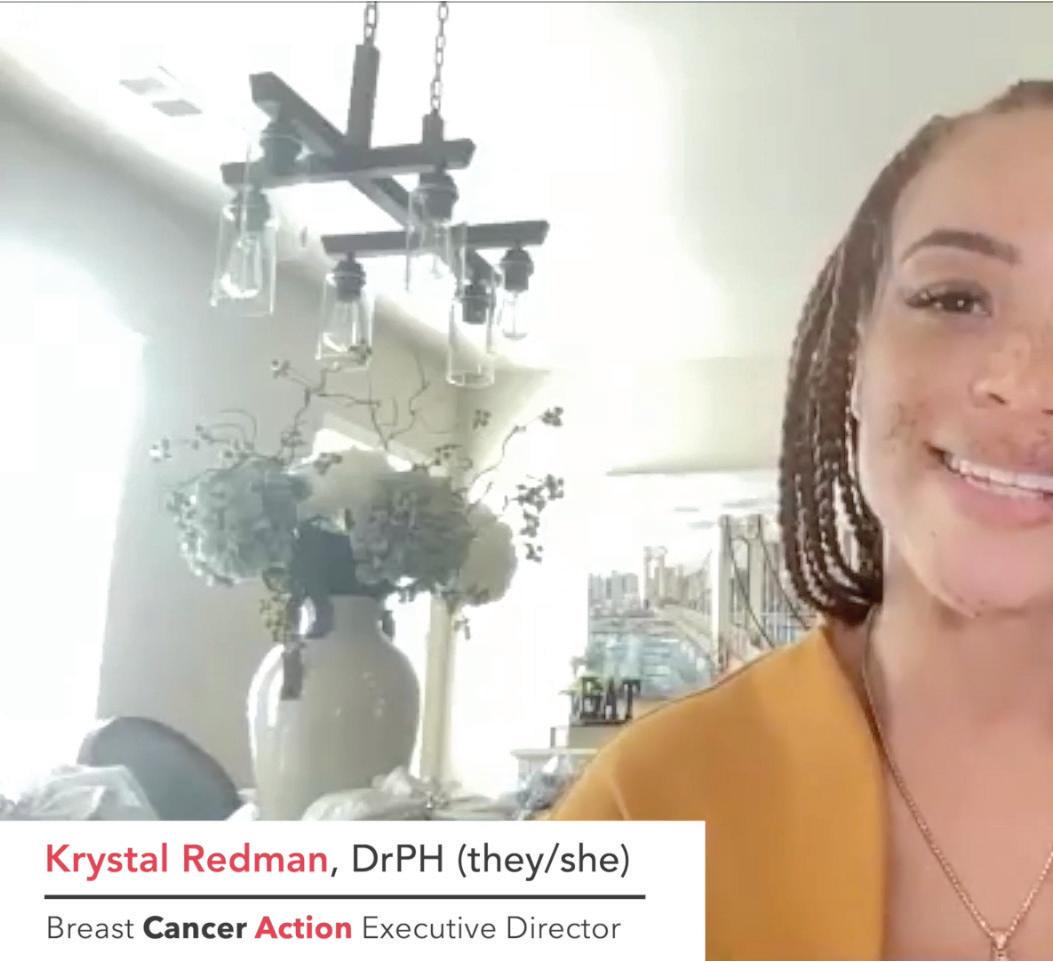
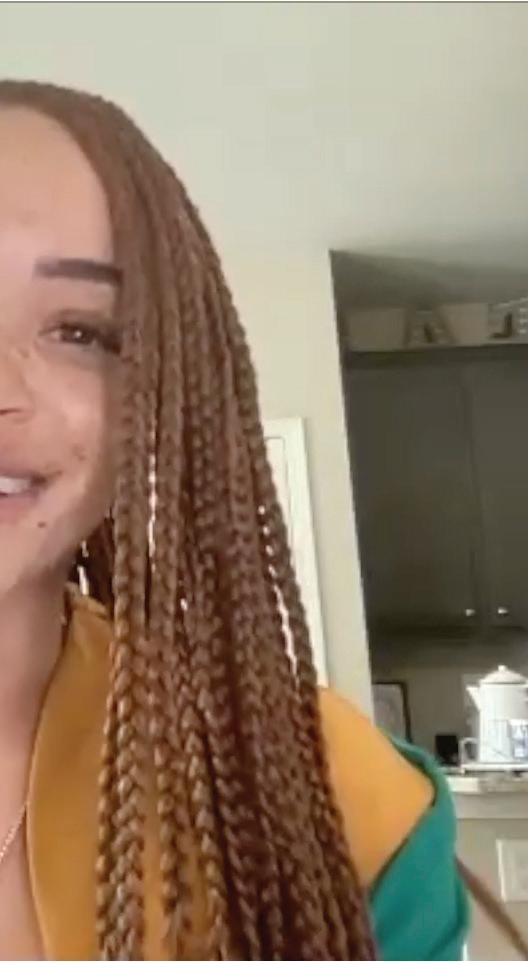
This new era of work brims with potential for growth and even deeper alignment to our core values. We look forward to defining our anti-racist commitments and reinvigorating our social justice roots through our strategic planning process which will deepen our health justice lens. This process feels fortuitously timed to be taking place alongside these numerous emergent changes.
I am eager to lead our resilient and nimble organization through this evolution. Unwavering throughout this growth and realignment is our unmatched commitment to speaking truth to power. Our bold work wouldn’t be possible if we took money from corporations that profit from or contribute to breast cancer. Thanks to your support, we don’t have to ever compromise this commitment to addressing and ending breast cancer, or our unique role of doing so by centering health justice.
Thank you for making this work possible,

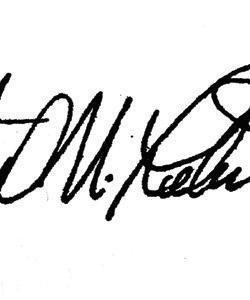
 Krystal Redman (KR) (they/she) Executive Director
Krystal Redman (KR) (they/she) Executive Director
3 ANNUAL REPORT 2020-2021



RAPID RESPONSE TO PROTECT PUBLIC HEALTH
As the trusted watchdog for the breast cancer industry, leveraging our independent, breast cancer-centered perspective is uniquely important during an election year. This year we monitored legislative and agency issues as well as federal appointments, and we released messaging ahead of and in response to the 2020 election about what a change in administration means for the breast cancer crisis.



We mobilized hundreds of members to take action on legislation regarding fossil fuels and plastic pollution, by calling for California members to sign a petition to tell the Governor to stop issuing new fracking permits. Despite Governor Gavin Newsom’s campaign promises to end fracking and move California off fossil fuels, his office approved 48 new fracking permits from January to July of 2020 alone.
Additionally, our organization submitted a formal letter of support for SB467, a California bill that creates a phase-out of well stimulation treatments and neighborhood drilling, while directing the California Geological Energy Management Division (CalGEM) to provide a pathway for workers to transition into oil and gas well remediation jobs.
We galvanized members nationwide to contact their representatives about the Break Free from Plastic Act (H.R. 5854). Plastic products, the majority of which are sourced from fossil fuels, expose us to pollution and hazardous synthetic chemicals. The Break Free From Plastic Act would put a temporary halt on new permits for plastic production facilities, update the Environmental Protection Agency’s regulations to eliminate factory-produced plastic pollutions, and push the EPA to update existing Clean Air and Clean Water Act emission standards.
Throughout the year, our rapid response work also held the Food and Drug Administration (FDA) accountable. In the fall of 2020, Congress released a third-party assessment of the Food and Drug Administration’s communication model, which prioritized the communication between industry and FDA, excluding mention of correspondence between patients and industry. Marie Garlock, a former member of our Community Leaders Program, testified at the FDA’s open comment period and relayed the importance of our patient-centered stance to the agency. During the FDA’s open comment period, we mobilized members to submit written comments and tell the agency that they
must center patients throughout the drug approval process.
With a new administration comes new leadership. Although President Biden has yet to appoint a permanent commissioner for the FDA, when it became clear Acting Commissioner Dr. Janet Woodcock was a potential nominee for the role, we urged members to send letters to their senators asking to oppose her nomination. In March of 2021 we sent a letter to the Department of Health and Human Services expressing our opposition to Dr. Woodcock’s potential nomination, and stated that Biden must appoint a leader who is devoted to restoring the scientific integrity of the agency, prioritizing public health over industry interest, and who is committed to ensuring a balance between approval speed and drug safety and efficacy. Our opposition to Dr. Janet Woodcock was unique, if not controversial, and garnered coverage in a STAT News piece highlighting the concerns of her detractors.
Our messaging ahead of the 2020 election and in response to the January 6, 2021 insurrection connected racism, sexism, and the previous administration’s work to stop forward progress, to the same forces of systemic oppression and institutionalized racism that create disparities in breast cancer incidence, mortality, and survival.
After the Biden Administration took office, despite the transition to a more progressive administration, we immediately stated our readiness to roll up our sleeves to work with—and hold accountable—the new administration to cultivate a world where our lives and communities are not threatened by breast cancer. We released a welcome card to the administration laying out our top priorities by which the administration can truly address and end breast cancer: address systemic racism; increase transparency and accountability at the FDA and the Environmental Protection Agency (EPA); focus on primary prevention; ensure better breast cancer treatments that are more effective and less toxic; and enact universal healthcare.
5 ANNUAL REPORT 2020-2021



CRITICAL ANALYSIS AND THOUGHT LEADERSHIP
Breast Cancer Action is a nationally recognized voice, known for calling out pinkwashing, putting patients before profits, advocating for better regulation of cancer-causing toxins, and eliminating health inequities.
Our staff spoke about these priorities and our work to address and end breast cancer at the following events and opportunities:
• We were invited as panelists on the “Doctor Is In” a weekly web series that airs on BlackDoctor.org and is led by Dr. Monique Gary, a surgical oncologist, and Ricki Fairley, Founder and CEO of Touch, a foundation with the mission to bring attention to Black breast cancer with the hopes of eradicating it.
• Our Program Manager, Jayla Burton, presented at Indiana University-Purdue University Indianapolis, Paul H. O’Neill School of Public and Environmental Affairs on Breast Cancer Action’s historical activist and environmental work.
• Executive Director Krystal Redman was a panelist at the session Cancer Control: Pathways to Transformation at the 2021 State of Black Health conference.
• Two Breast Cancer Action staff members were featured guest speakers on From Beyond the Redwood Curtain, a unique KMUD Public Affairs program, in a conversation on the urgent need for change in California policy to protect those on the front lines of fossil fuel infrastructure that can increase the risk of breast cancer.
• We discussed how our conflict-of-interest policy allows us to be the watchdog for the breast cancer movement, and how our independence motivates our members to engage and support our work on the Doctor Susan Foundation’s “#LOVEBeyondtheBrand: 2020 Trends in Corporate Social Responsibility.”
• In addition to these outstanding speaking opportunities, we were interviewed for the piece “Her Pain Was Their PR” by Boston Magazine, as well as “Your Environment May Increase Your Risk for Breast Cancer. Here’s How,” by Because Health. These pieces illuminated the problems of corporate breast cancer fundraising and environmental exposures through our critical health justice lens to new audiences.
Alongside special guest writer and former Executive Director Karuna Jaggar, we attended the largest breast cancer conference in the world, the San Antonio Breast Cancer Symposium. We collaboratively produced 14 blog posts on emerging treatment issues, the most we’ve ever written about the conference. We covered everything from immunotherapy, to screening for Black women, and changes in treatment protocols that will spare more women from chemotherapy.
As an indispensable voice on unique coalitions working on issues of breast cancer screening, treatment, and diagnosis, this year we developed recommendations to improve the FDA’s guidance on breast implants through participation in the Breast Implant Working Group and the Executive Committee for the Breast Device Collaborative Community
And despite the Supreme Court ruling in our favor to strike down Myriad Genetics’ patents on the human breast cancer genes in 2013, when North Carolina Senator Thom Tillis introduced new legislation to challenge this ruling, we joined the Patient Stakeholder Group and delivered a letter to the Senator stating our concerns and opposition.
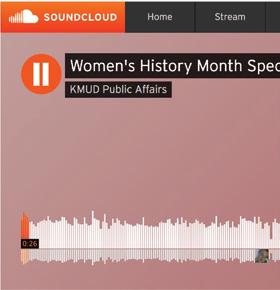
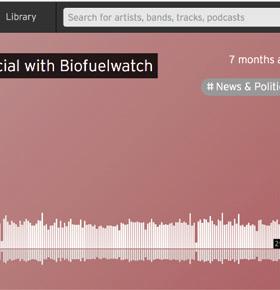
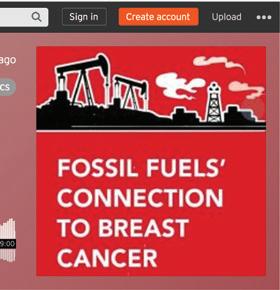
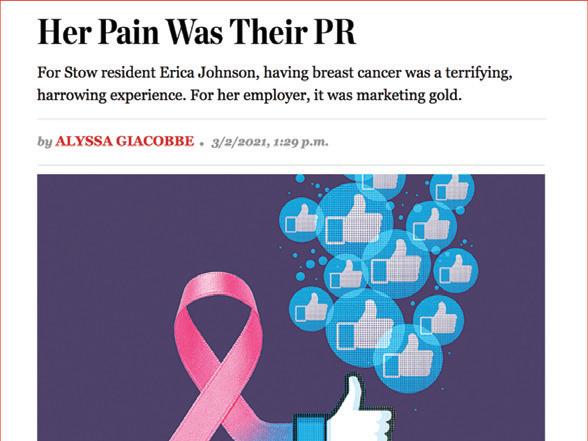

6
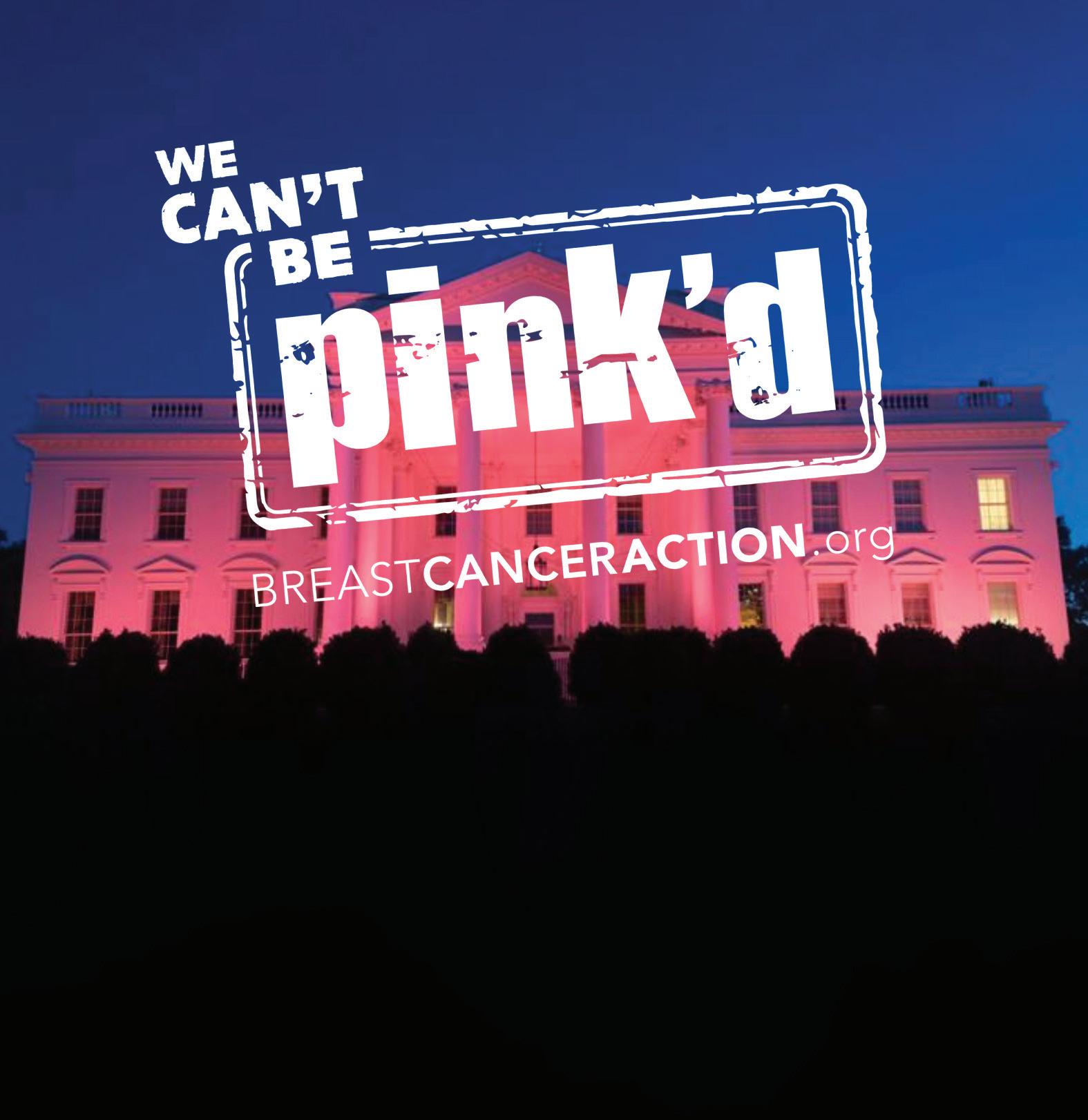
DISRUPTING PINK RIBBON CULTURE
Our 2020 Think Before You Pink® campaign “We Can’t Be Pink’d: Say NO to Pink Policies,” was our first-ever four-target campaign that went all the way to the top - we called out the Trump administration for their lack of leadership on the breast cancer crisis.
Specifically, we made demands of four agencies: we told the Environmental Protection Agency to stop environmental rollbacks; the Food and Drug Administration to better protect patients and consumers; the National Cancer Institute (NCI) to disseminate the most up-to-date information on environmental exposures and breast cancer; and the Department of Justice to stop their work to invalidate the Affordable Care Act.
We unabashedly called out the Presidential Administration, or as we called it the Pink’d Administration, showing that their aggressive deregulation efforts, lack of oversight, dissemination of misinformation, and efforts to dismantle access to quality and affordable health care exacerbate systemic inequities that are the foundation of American society.
The work to push the NCI to better represent the environmental causes of breast cancer was a standout call to action. Our letter to the agency was signed by over 100 ally organizations and individuals, and leading scientists Dr. Margaret Kripke and Linda S. Birnbaum co-authored an op-ed about the campaign in leading health and medicine outlet STAT News.



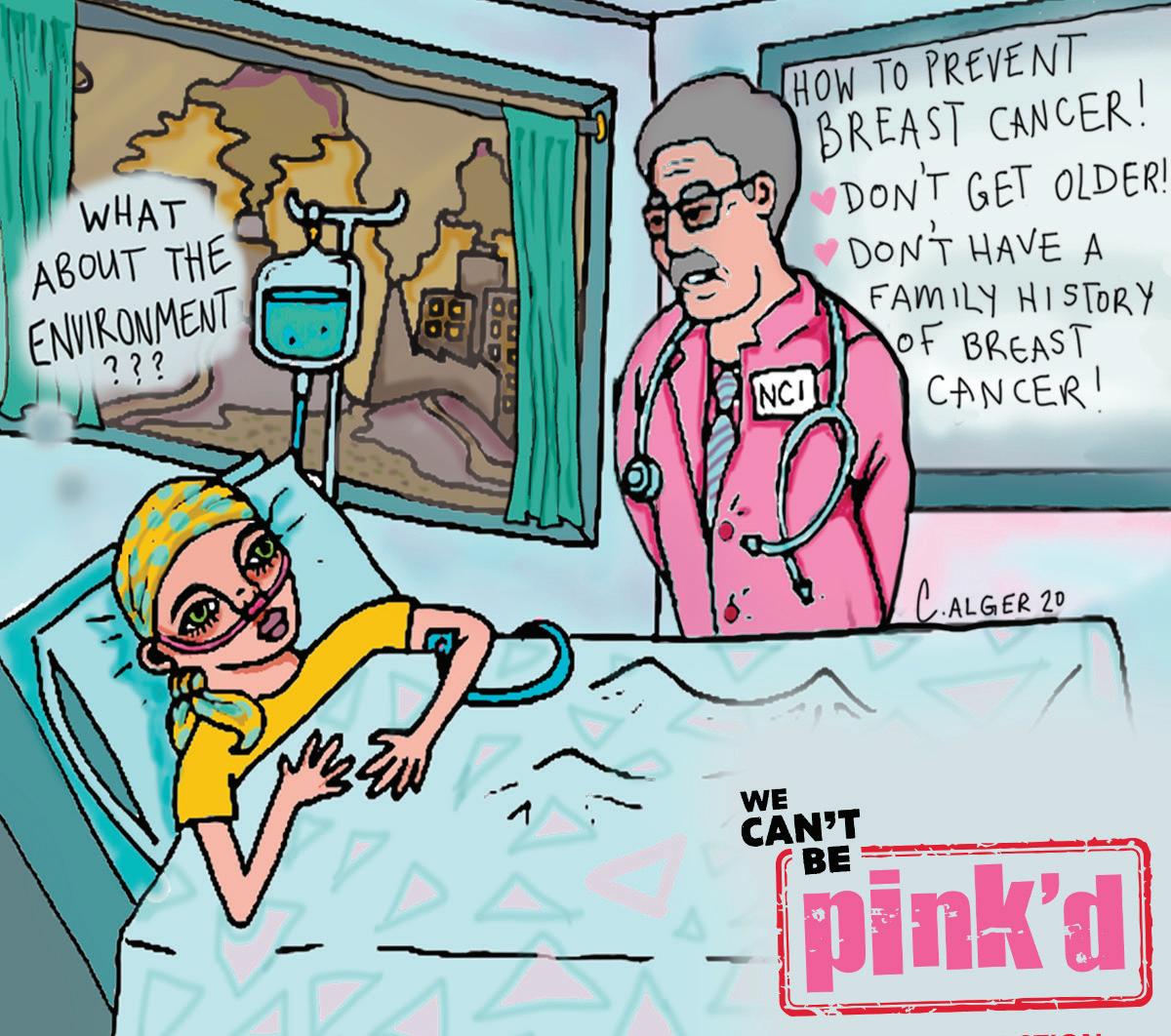
But this work did not end after October. Throughout the rest of the year, and into 2021, our members joined us in calls to action to escalate our demands to the National Institutes of Health and the Department of Health and Human Services. The continued pressure from our campaign and our members has resulted in our seat at the table with the NCI. We’ve been in continued conversation with the agency since November of 2020, and facilitated meetings with NCI staff and the Silent Spring Institute.
Highlights and Achievements of We Can’t Be Pink’d:
• We coined a new term: “pink policies.” Pink policies are policies, or a lack of policies, that fail to protect people living with breast cancer and increase breast cancer risk for all people, especially for women, people of color, and low-income people.
• We were interviewed by PRNews for the piece “Brands Urged to Approach Breast Cancer Awareness Month Honestly” about the We Can’t Be Pink’d campaign and how other brands can avoid empty awareness.
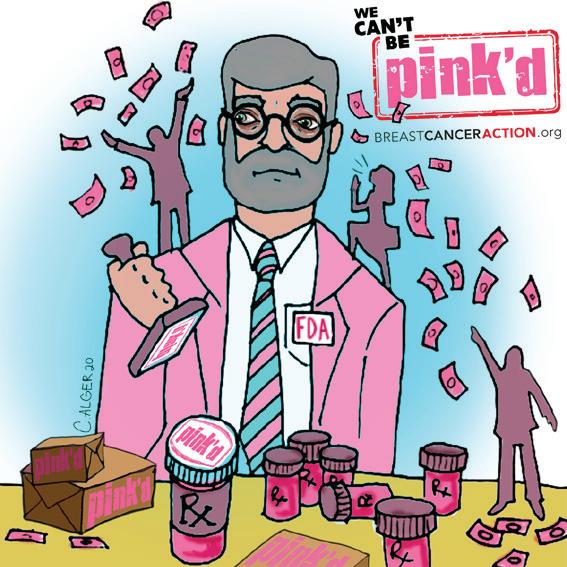
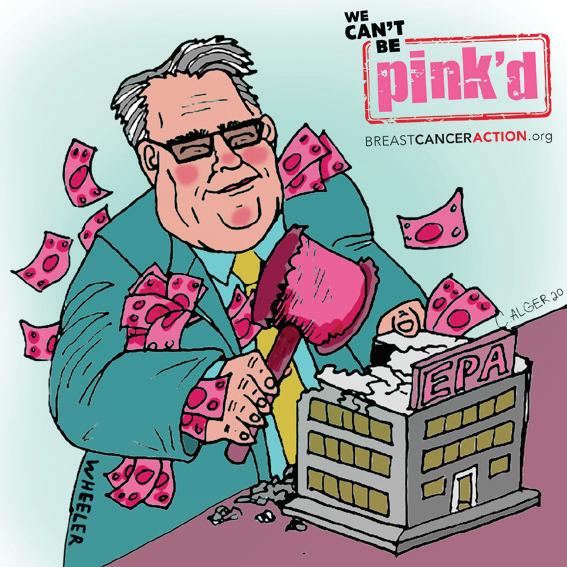
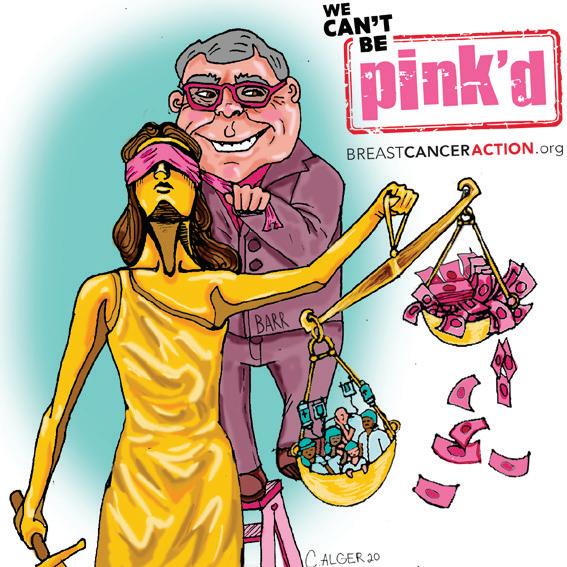
• The campaign was featured by our advocacy platform, Phone2Action, when Program Manager Jayla Burton was a panelist at Phone2Action’s 2020 Action Roundtable, a webinar highlighting the platform’s most creative and well-executed campaigns.
• We produced three first-person video stories featuring our members. In the past we’ve highlighted member stories on our blog, while this year we were able to utilize this new medium to uplift how the policies called for in the campaign impact the daily lives of people living with and caring for others with breast cancer.
8



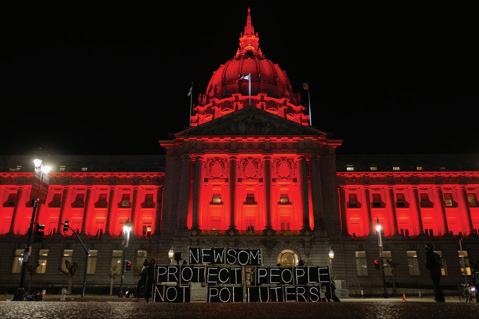
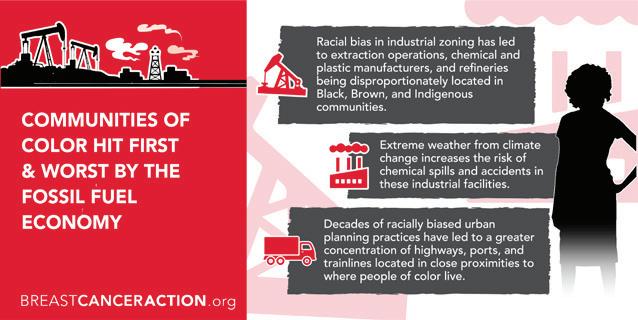
Since our founding 30 years ago, we have worked to identify and eliminate the root causes of breast cancer. As both leaders in the breast cancer movement and coalition members across movement spaces, we continue to draw new connections to stop breast cancer before it starts.
As a member of The Cancer Free Economy Network (CFEN), we collaborate with other organizations that focus on cancer, health, and the environment, and advocacy leaders working to address other types of cancer, through four strategic pathways: building power, health and science, shifting the market, and policy and legal. This year we participated in CFEN’s Emerging Leader Cohort, and completed an evaluation on the network’s Cancer, Chemicals, and the Economy Training program.
We’ve been with the Last Chance Alliance since the start, and this year we expanded our work within this coalition to stop fossil fuels in California by attending a virtual, two-day strategy retreat. We gathered with key partners in the state to strategize on winning health and safety buffers from oil and gas drilling known as “setbacks,” as well as expanding education on California wildfires.
In February of 2021 we joined Last Chance Alliance activists at the Sacramento Capitol Building and at San Francisco City Hall to take part in a Light Board Action directed at Governor Newsom. We sent a clear and illuminating message to the Governor ahead his state of the state address: stop new fossil fuel projects, drop existing oil productions, and roll out setback limits.
In addition to direct action opportunities, we grew our digital outreach efforts with the Last Chance Alliance through the coalition’s Week of Action. We elevated messages across our social media commemorating the Southern California
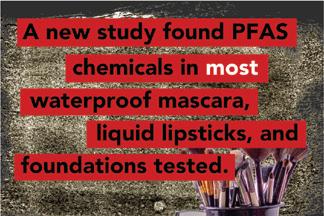
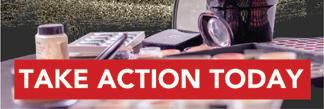
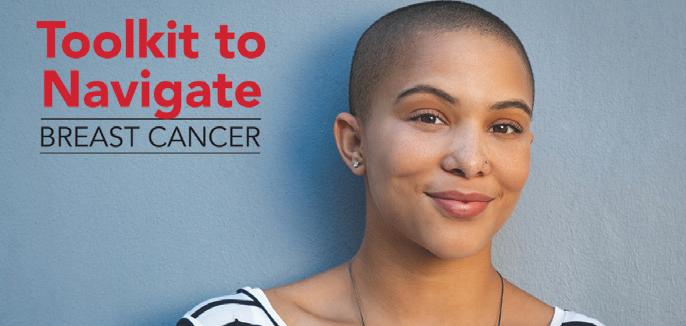
STOPPING BREAST CANCER BEFORE IT STARTS
Co.’s Aliso Canyon storage field explosion, calling for Governor Newsom to shut down the facilities.
Whether in coalition spaces or by breaking new ground in the field of breast cancer, our fossil fuel work is core to our work on breast cancer and the environment.
This year we released our Why We Must Stop Fossil Fuels Fact Sheet, drawing new connections between fossil fuel chemicals like Benzene, Polyaromatic hydrocarbons or PAHs, dioxins, pesticides and herbicides and breast cancer. This first-of-its-kind work has been translated into multiple formats to ensure they are accessible to different audiences; we produced a webinar, podcast, and infographics each elucidating this ground-breaking science.
As the year came to a close, we worked with our friends and allies at Green Science Policy Institute (GSPI) on the No PFAS in Cosmetics Act. GSPI worked with the University of Notre Dame on a study that found that PFAS were present in over half the makeup products tested. We worked in collaboration with these scientific partners to lead the advocacy efforts to take this study to the next level, and we mobilized members to contact their legislators and demand that they support the bipartisan No PFAS in Cosmetics Act, which will eliminate all intentionally added PFAS from personal care products.
Looking ahead, this year BCAction was selected for two exciting and impactful research grants by the California Breast Cancer Research Program (CBCRP), for which the work will begin in the following year. We have been selected as the Community Partner in the study “Breast Cancer and the Environment: Investigating Industry Influence on Scientific Information,” as well as the central convener role for the study “The California Initiative to Prevent Breast Cancer in Immigrants.” Stay tuned for more information on the results from these industry-disrupting and equity-oriented initiatives.
9 ANNUAL REPORT 2020-2021



DEMANDING HEALTH JUSTICE
In order to address and end the breast cancer epidemic, we must tackle the root causes of health inequities, which are the result of a complex interplay of culture, power, economics, racism, and sexism.
As the community partner in the study “Linking Neighborhood and Individual Adverse Childhood Experiences (ACEs) to Breast Cancer,” alongside Child Health and Development Studies (CHDS), our research team is exploring bold questions, including: Is there something about living in a racially segregated neighborhood that contributes to breast cancer? What about more aggressive forms of breast cancer? And are these experiences a form of childhood trauma? We produced a podcast episode and a blog post about this research project, and look forward to sharing results from the study when they are available.
BCAction is also the community partner on the GRAton PEsticides (GRAPE) Research Project, which aims to investigate potential water and air contamination
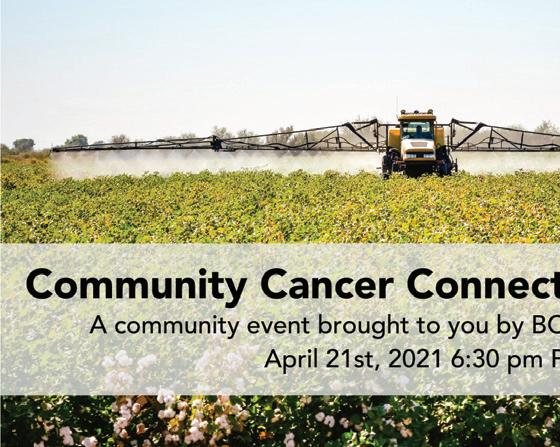
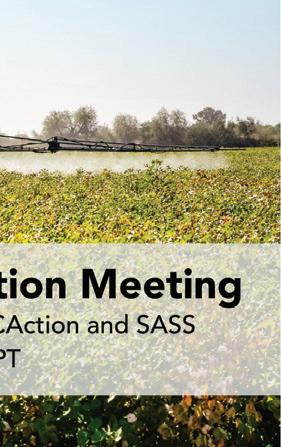
from agricultural pesticides in the city of Graton in Sonoma County. These environmental exposures primarily affect agricultural workers and, as a partner in the study, our staff facilitated the Community Cancer Connection Meeting to inform, connect, and learn about the needs of those with cancer in the community.
We continue our impactful partnership with the Lymphedema Treatment Group to pass the Lymphedema Treatment Act, which will change Medicare law to cover doctor-prescribed compression supplies— setting a precedent for Medicaid and other insurers to do the same. It is imperative that we all have access to essential medical supplies used to manage this common side effect of breast cancer treatment.
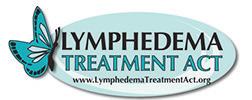
In March of 2021, BCAction put out a rapid response statement standing in solidarity with the AAPI community following the killing of eight people, six of whom were Asian American and Pacific Islander (AAPI) women in Atlanta. While not directly a breast cancer issue, we are committed to addressing and ending breast cancer through a health justice lens, and this includes the work it takes to be actively anti-racist, demanding the systemic change necessary for a more just and healthier world, and working to dismantle all systems rooted in white supremacy. We know the same social determinants that increase an individual’s likelihood of experiencing racialized violence are the same social determinants likely to contribute to the development or mortality of breast cancer. As breast cancer activists, we work to change this, and to create a world where our lives and our communities are not threatened by breast cancer, gender violence, and racism.
10



We provide important, evidence-based resources for people living with breast cancer and at risk of breast cancer. This year, we continued to provide our indispensable, personalized information and resources services while also expanding the ways in which we disseminate information, making our deliverables more accessible to more people.
Through our information and resource service (I&R) our experienced and compassionate staff field hundreds of calls and emails a year from people who’ve just received a breast cancer diagnosis, or their caregivers, and are looking for information about possible treatment options or complementary therapies, free of industry influence. We believe everyone deserves unbiased, understandable, patient-centered information to decide what is best for them.
We’ve updated our indispensable guide, The Toolkit to Navigate Breast Cancer, to best reflect the most up-to-date information on breast cancer types and staging. This resource, which helps anyone who has been recently diagnosed and their caregivers to learn about their options and partner effectively with their providers to choose the treatment that is best for them, is comprised of two parts: What You Need to Know About Breast Cancer and Tools and Tips for a New Breast Cancer Diagnosis.
As the watchdog of the breast cancer industry, we produce frank, fearless, and fact-based content on The Breast Cancer Action Podcast. Episodes released this year were:
• What the National Cancer Institute Leaves Out About Environmental Exposures
• The Fossil Fuel to Breast Cancer Pipeline
• The Impact of Adverse Childhood Experiences (ACEs) on Breast Cancer
• Addressing Disparities: Screening vs. Systemic Change
• Uncovering LGBTQ Breast Cancer Realities
UNBIASED, PATIENT-CENTERED RESOURCES
This critical, health justice take on issues that impact the breast cancer community is what makes BCAction unique and cannot be found anywhere else.
We also released our fossil fuel work through a webinar, The Fossil Fueled Health Crisis, featuring Silent Spring Institute Staff Scientist Kathryn Rodgers and Esperanza Community Housing Corporation Community Organizer Monic Uriarte. These experts illuminated both the science and personal impact of locating oil and gas drilling in the places that we live, work, and play. Together, we investigated the question: How we can win against big oil?
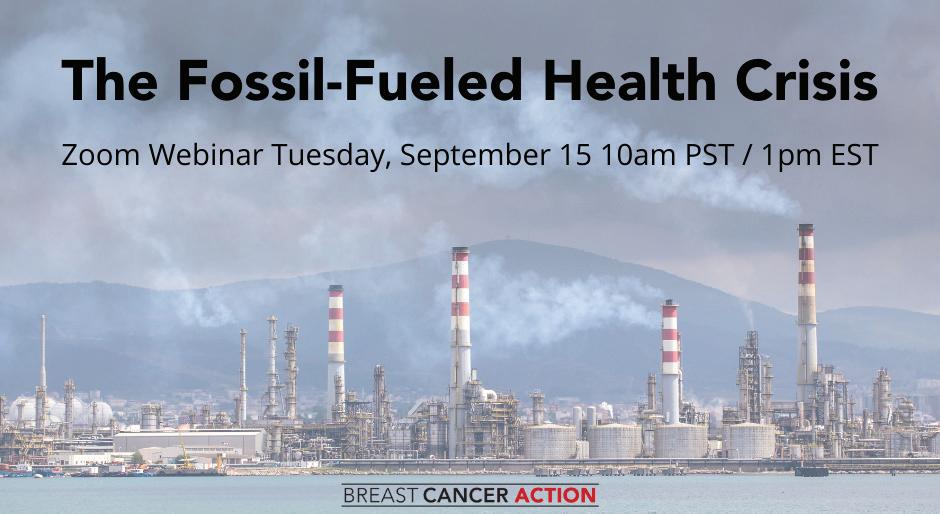
New to Breast Cancer Action this year are our recently-launched Instagram page and our redesigned, more powerful, and better values-aligned website, available at bcaction.org. The website features a new Resource Library, which ensures resources like the podcast, webinars, and toolkits are up-to-date, easy to find, and more accessible. Our small but mighty team strives to bring all of our resources to a variety of platforms, to counterbalance hyped-up headlines and corporate influence, reach and engage with more communities of people, and to see that our indispensable take on breast cancer is available to all.
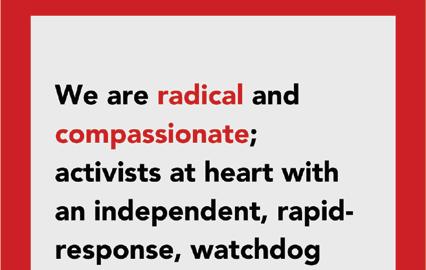

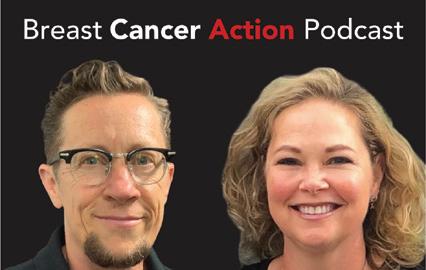

11 ANNUAL REPORT 2020-2021



THANK YOU DONORS AND SUPPORTERS
Includes gifts $250 and above between July 1, 2020-June 30, 2021. Please contact Development Manager Lopa Pal at lpal@bcaction.org for errors or omissions.
$25,000 and up ► The 11th Hour Project: A Program of The Schmidt Family Foundation ► Lesbians for Good ► Public Health Institute ► 1 Anonymous donor $10,000-$24,999 ► James and Michael Hormel ► Angela and Samuel Schillace ► Watson Trust -- East Bay Community Foundation ► Barbra Wiener ► Laure Woods ► Jane and Stacey Zones § ► 1 Anonymous donor $5,000-9,999 ► The Coleman Family Foundation ► Alice Coopersmith Furst ► Cowles Charitable Trust ► Kathie Florsheim ► Stephanie and Fred Harman ► Peggy Huston ° ► Paulette Meyer and David Friedman ► Peleh Fund ► Karen and Karel Urbanek ► 2 Anonymous donors 2,500-4,999 ► Elissa Arons ► Janice Brody ► Betsy Cotton ► Donna Dubinsky and Len Shustek ► Joan Finnigan and Mark Matteucci ► Glikman Associates ► Gail Kaufman ► Tracy Kolian ► Cathy Kornblith ► Gardner Loulan and Liz Miracle ► Mechanics Bank ► Rachel Morello-Frosch and David Eifler ► Pratapaditya and Chitralekha Pal ► Debra and Andrew Rachleff ► Lee Ann Slinkard and Maria Morris ► Tracy Tamasi ► Tamatha Thomas-Haase ► Lucy Waletzky ► Tracy Weitz ► Charlotte and Arthur Zitrin Foundation ► 1 Anonymous donor $1,000-2,499 ► Margie Adam and Ruth Macgregor ► Lori and Eric Anders Household ► Apple Matching Gifts Program § ► Abigail Arons and Matthew Bennett ° ► Paul and Beth Bartlett ► Rachel and Michael Benning ► Nicole Brown ► Beverly Canin ° ► Claudia Cappio and Peg Stone ► Alison Carlson ► Charity Gift Certificates ► Judith Chasin ► Community Thrift Store ► Mary Anne Courtney and Beverly Scott ► John Crew ► Rebecca Cruz Tanaka ► Joy DonerMazzeo ► Dr. Samantha Gottlieb § ► Laurie Drabble and Chase Pearce ° ► Stephen and Dorian Dunne § ► Emily and Ryan Stoner ► Fred Gertler °* ► Michelle Garcia and Ed Hunter ► Geoff and Colleen Tate ► Deborah Golder ° ► Google § ► Mary Gray and Catherine Guthrie ► Richard Grosboll ► Neyhart Anderson ► Flynn Grosboll ► Evelyn & Walter Haas, Jr. Fund ► Crystal Hayling ► Denise and Todd Helfstein ► Janet Hendricks ► Kate Holcombe, Healing Yoga Foundation ► Noelani Holden-Kane ► Benjamin and Katie Horne ► Linda and Jerome Hosken ► Lori and Deke Hunter Household ► Gaye Hyre ► Jessica and Benjamin Rosenberg ► Joshua and Mary Lipp ► Joyce Bichler and Dr. Michael Kimbarow ► Kassia Siegel ° ► Barbara and James Kautz ° ► Laura Kavanaugh ► Kazan McClain Partners Foundation ► Melissa and Joseph Kraus ► Paul Lindner ► Susie and John Loulan ► Helen Love ► Dr. Ngina Lythcott, Ph. and Byllye Avery ► Craig Mahonchak § ► Linda Marks and Rafael Lopez ► Microsoft Matching Gifts Program § ► Diane Mosbacher and Nanette Gartrell ► Judy Mullins ► Romencita Palarca ► Nisha Pillai ► Nancy Polikoff and Cheryl Swannack ► Michelle and Roxy Rapp ► Renee Ridgeley and Matt Selman ► Louise Rothman-Riemer and Davis Riemer ° ► Valerie and Michael Russell ► Marjel Scheuer ► Barbara Sideman ► Karen Strauss and Ruth Borenstein ► Frank Tippett ► Stefanie Trenchard ► Catherine Williams ► Annie Noonan and Jeff Wohl ► Alice Wolfson ► Sharon and Harold Yoh ► 6 Anonymous donors $500-999 ► 7-D Ranch Company ► Paris Adkins-Jackson ► Robert Appel ► Mary Armour ► Aimee Armsby ► Dara Arons ► Betsy Aubrey and Steve Lichtenberg ► Dr. Sharon Barrett ► Maria Barrows ► Jennifer Bastress ► Judy Bloom ► Anne Brennan ► Sophie and Arthur Brody Foundation ► Donna Brogan ► Diane Carr ° ► Nancy Cassidy ► The Center for Black Health & Equity ► Beth Chapman ► Elaine Costello and Bud Dougherty ► Nancy Joy Daniels ► Nancy L Davis and Donna Hitchens ► Sylvia Colt De Almeida ► Adam de Boor and Mari Osuna ► Emily Doskow and Luan Stauss ° ► Leslie Doyle ► Mary Enright-Olson ► Marian and Rabbi David E. Fass ► Linda Gebroe ► Leslie and Alex Gleser ► Nancy Gordon ► Marian Gray ► Laura Hamasaka ° ► Carol Harley ► Pan Haskins ► Phyllis Hatfield ► Mary Hayden and Carla Tomaso ► Mary Hedley and Stephen Morrell ► Wendy Hutchinson ► Steve Ike ► Paula Irons ► Karuna Jaggar and Dave
° Susan Stone Monthly Giving Circle * Barbara Brenner Rapid Response Fund § Matching Gifts and Workplace Giving
12



Otten ► M. Anne Jennings ► Adrienne Kernan ° ► Marilyn and Fred Klawiter ► Joan Klein ► Mike Kolian ► Dan Horn and Mike Kopicko ► Lisa Korwin and Kip Walsh ► Rebecca Krebs ► Barbara Maher ° ► Renetia Martin and Joe Massey ► Deborah Marx and David Helfant, PhD ► Susan and Mike McLaughlin ► Barbara Meislin and Stuart Kaplan ► Andrea Miller ► Jennifer Morgan and Andrew Donnalley ► Julie Morgan ► Robert Morton ° ► Lorie Nachlis and Abby Abinanti ► National Women’s Health Network ► Margaret O’Leary ► Hedda Orkin ► Lynne Parenti and Tina Ramoy ► Narendra Parson ► Cindy Pearson ► Yamini and Tushar Ranchod ► Marjorie Randolph ► Haidee Reyes ► Kendra Riedt ► Nina Robinson and Lincoln Cushing ► Ted Schettler ► Susan Schewel ► Laura Seitell ► Gail and Steven Shak ► Elaine Sisman and Martin Fridson ► Jala Smith-Huys ► Marty Sochet and Carol Jenkins ° ► Robert Gould and Patrice Sutton ► Ingrid Tischer ► Adrienne Torf ► Wendy Volkmann ► Leonie and Kate Walker ► Mara and Rick Wallace ► Lauren Westreich and Bob Emerson ► Ann and Lawrence Wheat ► Jon Whelan ► Amy Wilson and Paul Schwartz ► Bruce Wolfeld ► 13 Anonymous donors $250-499 ► Kim Acker ► Amazon Smile ► Chinyerem Amesi ► Mary Andreozzi ► Barbara Attard ° ► Karin Bartimole ° ► Karyn and Adam Bechtel ► Jennifer Belloni ° ► Denise Bellotti ► Karen Bowen and Beth Gerstein ► Amanda Brown-Stevens ° ► Gary Bucher ► James W. Budke, M.D. ► Linda Burnett ° ► Ronnie Caplane ► Metta Chaphiv § ► Zoe Christopher ° ► Esther Cohen ► Whitney Cohen ► Virginia Columna ► Laura and Hugh Cornish ► Bonnie Crater ► Ron and Sydney Crawford ► Miles Davis § ► Yvonne and Mike Deggelman ► Estelle Disch ► Daniela Dwyer ► Andrea Ferretti ► Susan Fitzgerald and Alexandra Altman ► Mark Flanagan ° ► Vicki and David Fleishhacker ► Patricia M. Fontaine ► Adam Frey ► Janet Frost ° ► Nikki Gage ► Dorothy Geoghegan ► Lori Gibson ► Deborah Gordon ° ► Christine Gouig ► Mimi Gray ° ► Nancy Hagen Goldstucker ► °Amy Harris ► Hewlett Packard § ► Kristen Hoehler ° ► Alice Hoffman ► Lisa Honig and Dale Schroedel ► Alma Jacobo ► David Kahne ► Leah Kaizer and David Salk ► Johonna and Aaron Katz ► Jennifer Kaufman ► Channte’ Keith ► Marylin Kelley ► Sandy Kesavan ► Kim Klein and Stephanie Roth ► Robin Kristufek ► Barbara Kuehn ° ► Mary Ladd ► Karen Levesque and Matt Schwartz ► Margarita Levisi and Dorothy Ruby ► Steve Lew ° ► Susan Liroff ► Tom Lockard and Alix Marduel ► Heather Long ► Amy Loulan ► JoAnn Loulan and Ronny Crawford ► Linda and Stephen D. Malone ► Nancy Markowitz ► Patricia McDowell ► Elizabeth Merck ► Andrew Merz ► Anya & Zora Miller and Walter Vom Saal ► Lana Miller and Linda Hyland ► Brian Mills ► Jo Ann Ogden and Janet Luce ► Victor Perez ► Sonja Perkins ► Alice Philipson and Petra Liljestrand ► Christine Pielenz ► Erica Pincus § ► Megan Prentiss ► John Presnall and Cheryl Presnall ° ► Ian Ratzer and Sara Barz ► Lynn Rigney Schott and Stephen Schott ► Margaret and Seth B. Rosen ► Irene and Frank Saltzman ► Jennifer Savage and John Dawson ► Sheila Schroeder ► Ellen Schwerin ° ► Toni Sherman ► Tracy Sherman ► Elana and Charlie Silver ► Janet and Richard Sommer ► Judy and Stephen Steinfeldt ► Kyra Subbotin and Henry Siegel ► Lillian Tallman ► Catherine Teare and Christine Lahey ► Leah Terhune ° ► Nicholas Thornton ► Gustavo Torrez ° ► Sarah Vradenburg ° ► Lisa Wanzor and Sarah Marxer ► Jacquette Ward and Howard Shafer ► Elizabeth Weed ► Katie Weitz ° ► Corinne Sue Wick ° ► Cynthia Williams ► Sandra Wisenberg and Lincoln Cohen ► Barbara Wunsch ► Stan Yogi and David Carroll ► 15 Anonymous Donors
In-Kind Donors 30th Anniversary ► Ann Kim ► Becky Deano ► Big Hair Fire & Glass ► Bini Pradhan ► Bridgett Bridgett Quinn ► Carla Walter, PhD, C-SP, C-DOM, C-SMT ► Carrie Stone ► Chris DeLorenzo ► Chitralekha Pal ► CoCo Villaluz ► Cole Hardware ► Debbie Bamberger ► Derek and Heather Powazek ► Dhurga Reddy ► Esther Shaw ► Flax Art & Design ► Joshua Ets-Hokin Photography ► Karen Klein and Ben Golvin ► Kari Marble ► Kate Holcombe ► Kathleen Holm ► Laura Ambroseno ► Laura Wheat ► Lesley Evers ► Mariposa Baking Company ► Marisa Frost ► Maw Shein Win ► Maya Kini Jewelry ► Michelle Oppenheimer, Artist ► Noelani Holden-Kane ► Oaktown Spice Shop ► Rachel Levin ► Rebecca Katz ► Rebecca Powazek ► Ricardo Levins Morales ► Roberto Lovato ► Rochelle Shicoff ► Rose Hagan ► Samanta Tello ► Sonja Perkins ► Stone Circle Trading - Heather Stone ► Tess Taylor ► Tibby Reas Hinderlie ► Vanessa Hua ► Vanessa Verlee ► Waterbar ► Zara Stone ► Zoë Christopher Drawing the Connections ► Adam Fujita ► Alexis Amann ► Barbara Coffman ► Carolina Novella ► Christy Chan ► Cristy C. Road ► Darla Arellano ► Debbie Bamberger ► El Maldito ► Gaye Hyre ► Heather Stone ► Jamie Sanchez ► Judy and Stephen Steinfeldt ► Michelle Oppenheimer ► Rebecca Katz ► Ricardo Levins Morales ► Sara L. Press ► Steven Regalado ► Susan Liroff ► Tylar Young
° Susan Stone Monthly Giving Circle * Barbara Brenner Rapid Response Fund § Matching Gifts and Workplace Giving
13 ANNUAL REPORT 2020-2021



FINANCIAL INFORMATION

INVEST IN BREAST CANCER ACTION
We refuse corporate funding from any company that profits from or contributes to breast cancer. Your gift is essential to supporting our work to achieve health justice for all women at risk of and living with breast cancer. Thank you!
MAKE A DONATION: OTHER WAYS TO SUPPORT OUR WORK bcaction.org/ways-to-give
By phone:
Please call us at 415-243-9301
By mail:
Breast Cancer Action
548 Market St
PMB 17179
San Francisco, California 94104
Online:
Go to bcaction.org/donate to make a secure online donation
Monthly Giving: Join the Susan Stone Circle of monthly donors to sustain our work over the long haul.
Planned Giving: Invest in BCAction’s activism by including us in your estate plans through the Elenore Pred Legacy Circle.
Barbara Brenner Rapid Response Fund: Support BCAction’s ability to quickly respond to emerging issues in breast cancer.
Start a “Don’t Pink for Me” Page: Tell your friends and family “Don’t Pink for Me” and ask them to make a donation to BCAction in your honor instead.
Stock Donation: Transfer a gift of stock or other securities to BCAction.
Susan Claymon Advocacy Fund: Support BCAction’s ability to advocate for systemic change.
14



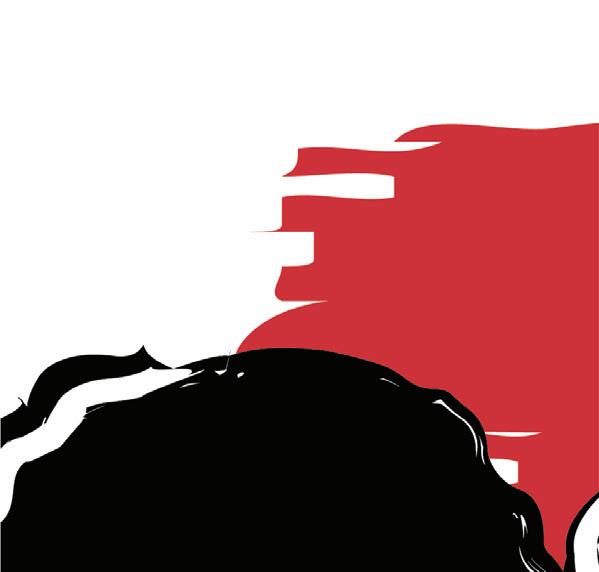
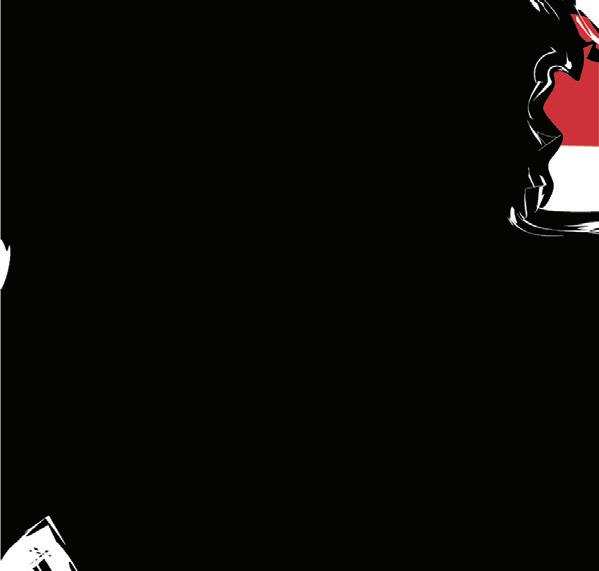
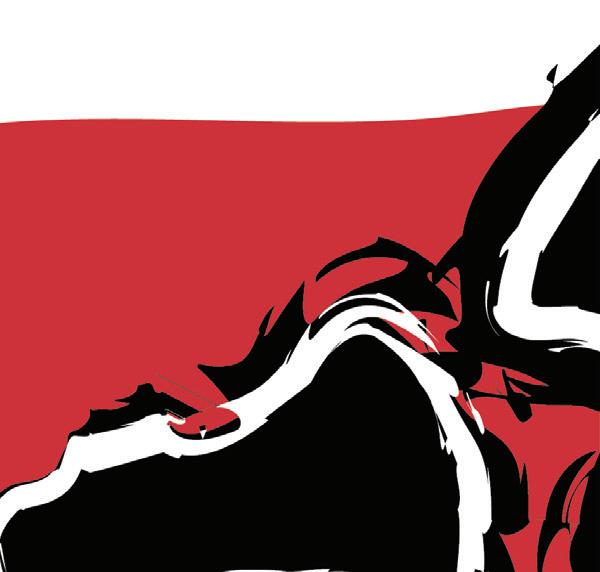
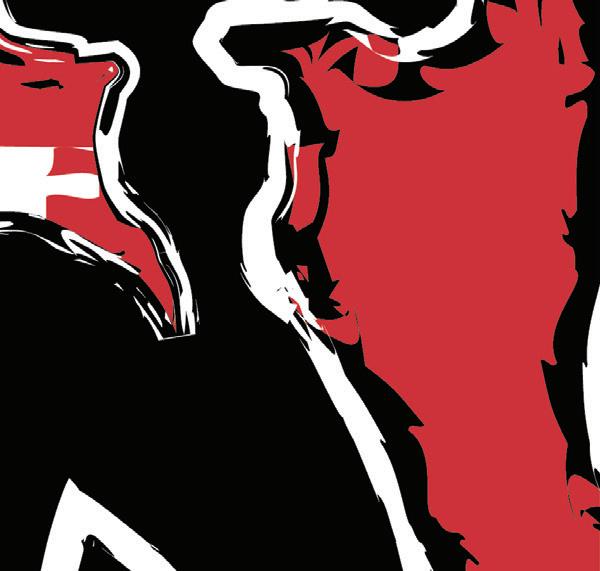
TAKE ACTION
Breast Cancer Action works on a range of issues, including advocating for less toxic, more effective, more affordable treatments for people living with and dying from breast cancer; ending our exposures to toxic chemicals linked to breast cancer; and taking a stand against corporate pinkwashing. We work to see that everyone has access to evidence-based, affordable, culturally competent healthcare and we work to eliminate the social inequities in breast cancer outcomes. Our power is in our members. Take action at bcaction.org
GET UPDATES
Make sure you don’t miss any of our action alerts on important campaigns to help address and end the breast cancer epidemic. Sign up for updates at bcaction.org/signup
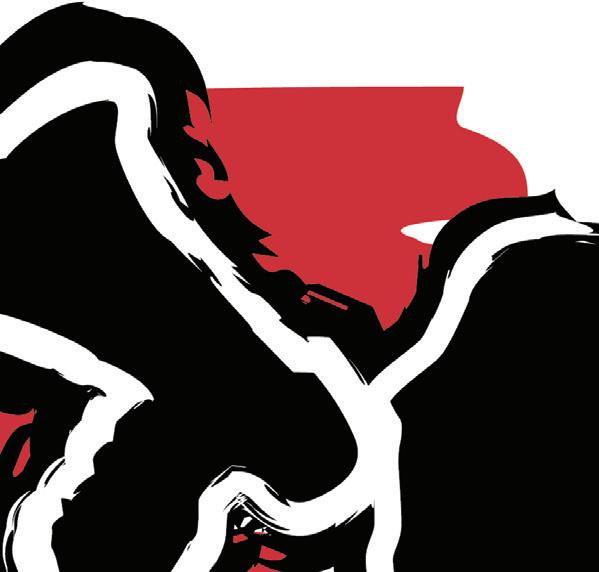


WEBINARS
We host free webinars featuring topic experts who offer independent, unbiased information on important breast cancer issues, including mammography screening, health inequities, and environmental links to breast cancer. Check out our free webinars at bcaction.org/ category/webinars/
FOLLOW US ON FACEBOOK, TWITTER, AND INSTAGRAM.
Get your daily dose of truth-telling news and analysis about the latest issues in breast cancer. Follow us @bcaction
MAKE A DONATION
Breast Cancer Action will never take corporate funding from any company that profits from or contributes to breast cancer. Your support makes our work possible and keeps us independent. Donate online at bcaction. org/donate.
15 ANNUAL REPORT 2020-2021



Board of Directors FY 2020 – 2021
Paris Adkins-Jackson
Sharon Barrett
Laura Hamasaka, Chair
Peggy Huston, Former Chair
Gail Kaufman, Vice Chair
Channte’ Keith, Chair, External Affairs Committee
Alicia Justice, Secretary
Yamini Ranchod, Former Vice Chair
Lee Ann Slinkard, Treasurer
Nicole Villaluz, Chair, Internal Affairs Committee
Tamatha Thomas-Haase
Tracy Kolian, Interim Chair, External Affairs Committee
Alma Busby-Williams
Belle Shayer, Emeritus
Staff FY 2020 – 2021
Rebecca Saltzman, Deputy Director
Zoë Christopher, Program Officer & Operations Manager
Krystal Redman, Executive Director
Marj Plumb, Interim Executive Director
Tibby Reas Hinderlie, Communications Manager
Heather Stone, Development and Communications Associate
Lopa Pal, Development Manager
Jayla Burton, Program Manager
548 Market St PMB 17179, San Francisco, California 94104 415.243.9301 bcaction.org



























 Krystal Redman (KR) (they/she) Executive Director
Krystal Redman (KR) (they/she) Executive Director


































